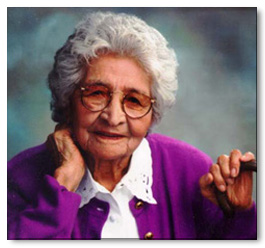Making Room at the Inn
- JENNIFER ROBACK MORSE
The self-sufficient, autonomous individual is at the heart of America's economic and political institutions. But some people are legitimately dependent on others.
 |
Children are profoundly, if temporarily, dependent on their parents. The elderly and the sick are dependent on others. The seriously disabled and the mentally ill are permanently dependent.
The problem of the legitimately dependent cannot be finessed or argued away. No possible reconstruction of the social, economic, and political system will eliminate the helplessness of infancy. The experience of illness and old age, while not universal, is widespread. This kind of temporary or partial dependency is both legitimate and unavoidable. The only way to eliminate the powerlessness of illness and old age would be to execute people at the first sign of infirmity. This ubiquity of unavoidable helplessness points to the possibility that dependency is not peripheral to the social order but is somehow central to it.
I maintain that we are afraid to look too closely at dependent people because they remind us that our own independence is fragile. The rational faculty is a gift that allows us to think and to choose, which, in turn, makes our freedom and autonomy possible. But our rationality is not a necessary fact about us; any one of us could get a bump on the head that would make us radically dependent on others. This is why we should not view our rationality or independence as the source of our value or dignity as persons. It is also a mistake to view people exclusively in terms of what they do for us, unless we expand our understanding of service.
A few years ago, I had the opportunity to find out just what kind of unconventional service the radically dependent person can provide for us. My husband's mother became seriously ill. She was diagnosed with breast cancer at about the same time that we (finally) realized that she had Alzheimer's. Her judgment, her memory, and her ability to take care of herself were deteriorating rapidly, at exactly the time that her illness made her even more needy. We told ourselves that we wanted to honor her independence as long as possible. That was only part of the truth. We also did not really want to admit that the mind of this wonderful person was fading away before our eyes. It finally became clear to us that she needed to move in with us.
Our son and daughter got to help take care of Grandma during those last six months of her life. She was a lovely, delightful person, easy to take care of. I made a game of it for the kids. I would summon them by clapping my hands and calling, "Elves, I need some elves. Grandmama needs a tissue" or whatever it was she needed. The kids would come running, tumbling over themselves to be the first one to bring Grandma whatever it was. She never failed to laugh at this, and the kids never failed to be pleased with themselves.
Grandma took a turn for the worse while my son and I were away on a trip to Switzerland and Washington, D.C. My husband called us to tell us to be prepared for the worst. When we got home, it was unusually hot and humid, and the family was keeping wet towels around Grandma's neck and trying to feed her ice chips to suck on. Nico went right to her room and began talking to her about our trip. She couldn't say much, but she smiled at him. I stayed with her and watched as the kids went outside to play together. Nico showed his sister his favorite souvenirs, a noisy cow horn from Switzerland and a kazoo in the shape of a duck's beak from "D.C. Ducks."
These kids just happened to play right outside Grandma's window, where she could see and hear them. She was happy just to watch them and listen to their noise. They just happened to bring their board game into Grandma's room and play at the foot of her bed. I didn't tell them to do it. They didn't talk about what they were doing. But it was obvious: They wanted to be near Grandma because it would make her happy to see them there. Somehow, the two of them intuited that it was good for them to be near a dying woman whom they loved.
It might seem that they were doing her a service and that she got all the benefits in this situation. She plainly took pleasure just in being close to these children. She didn't look very good; in fact, her appearance was alarming. She was dying, she couldn't do anything for herself. She would never be able to do anything for them.
But she did give them something: They got to know that they were of value to her, simply by being there. They didn't have to do anything to be important to her and be loved by her. They got to have the experience of being valued simply because they exist. That is as close to unconditional love as a person can get this side of heaven.
Surely, this experience of unconditional love is crucial for the foundation of a healthy personality and sense of self-worth. Certainly, that is how a mother wants her children to feel. What could I have done that could convey that message any more powerfully than their grandmother did on her deathbed?
This is ultimately the contribution of the dependent to the rest of us: they teach us how to love and be loved.
 |  |
A longer version of this essay appears in the book Wealth, Poverty, and Human Destiny, edited by Dough Bandow and David L. Schindler.
Available from the Hoover Press is Controversial Essays, by Thomas Sowell. To order, call 800.935.2882.
 This is Meaghen Gonzalez, Editor of CERC. I hope you appreciated this piece. We curate these articles especially for believers like you.
This is Meaghen Gonzalez, Editor of CERC. I hope you appreciated this piece. We curate these articles especially for believers like you.
Please show your appreciation by making a $3 donation. CERC is entirely reader supported.

Acknowledgement
Jennifer Roback Morse. "Making Room at the Inn." Hoover Digest No. 1 (Winter 2004).
This article reprinted with permission from the Hoover Digest.
The quarterly Hoover Digest presents informative pieces on a wide range of public policy issues. Published by the Hoover Institution, a public policy research center at Stanford University, the Digest consists of short articles and opinion pieces written by the Institution's scholars. The mix of articles includes original pieces as well as reprinted material and excerpts from books and monographs. The print version of the Digest is available on a subscription basis of $25 a year in the United States. (Foreign subscriptions are subject to additional postage.)
The Author
 Dr. Jennifer Roback Morse is the founder of the Ruth Institute, an interfaith international coalition to defend the family and build a Civilization of Love. She is author of Smart Sex: Finding Life-long Love In A Hook-up World, The Smart Sex Series: 3 CDs, and Love and Economics: Why the Laissez-Faire Family Doesn't Work.
Dr. Jennifer Roback Morse is the founder of the Ruth Institute, an interfaith international coalition to defend the family and build a Civilization of Love. She is author of Smart Sex: Finding Life-long Love In A Hook-up World, The Smart Sex Series: 3 CDs, and Love and Economics: Why the Laissez-Faire Family Doesn't Work.




